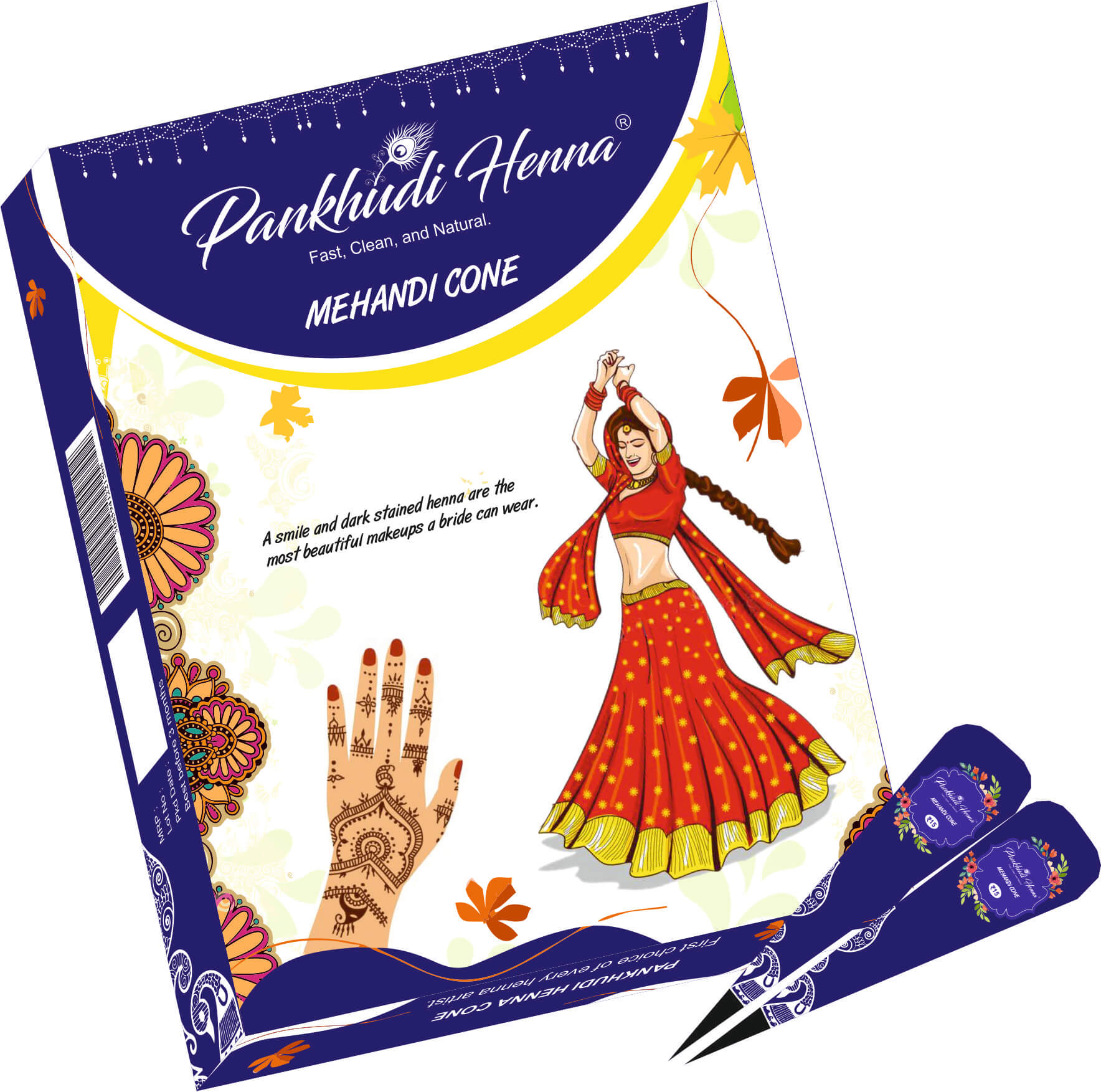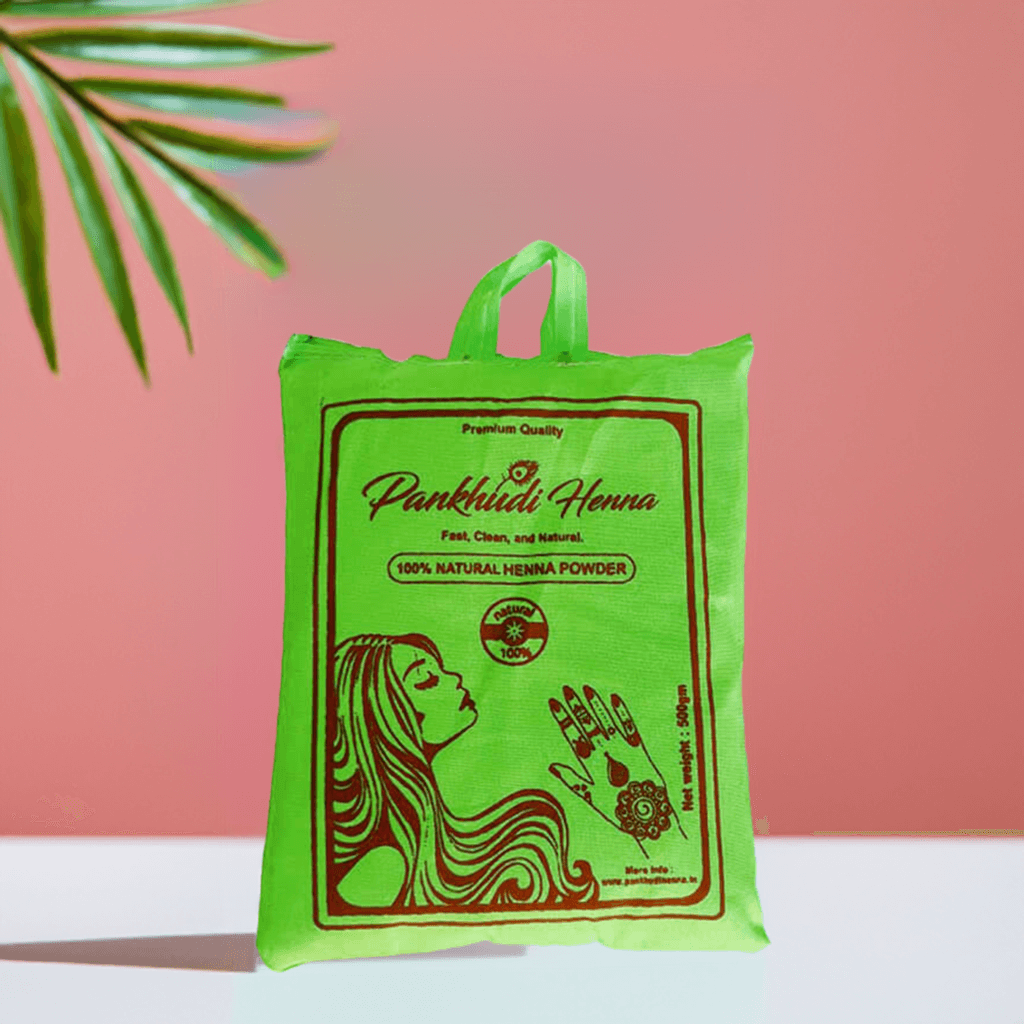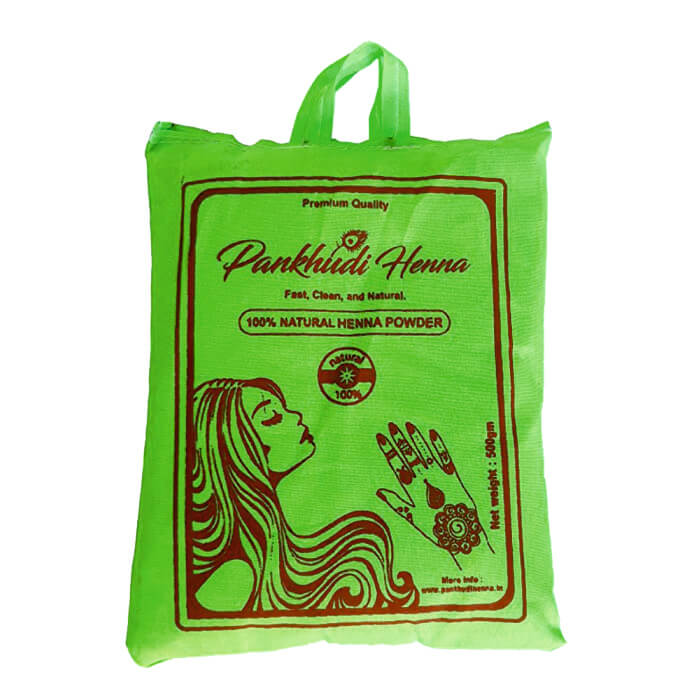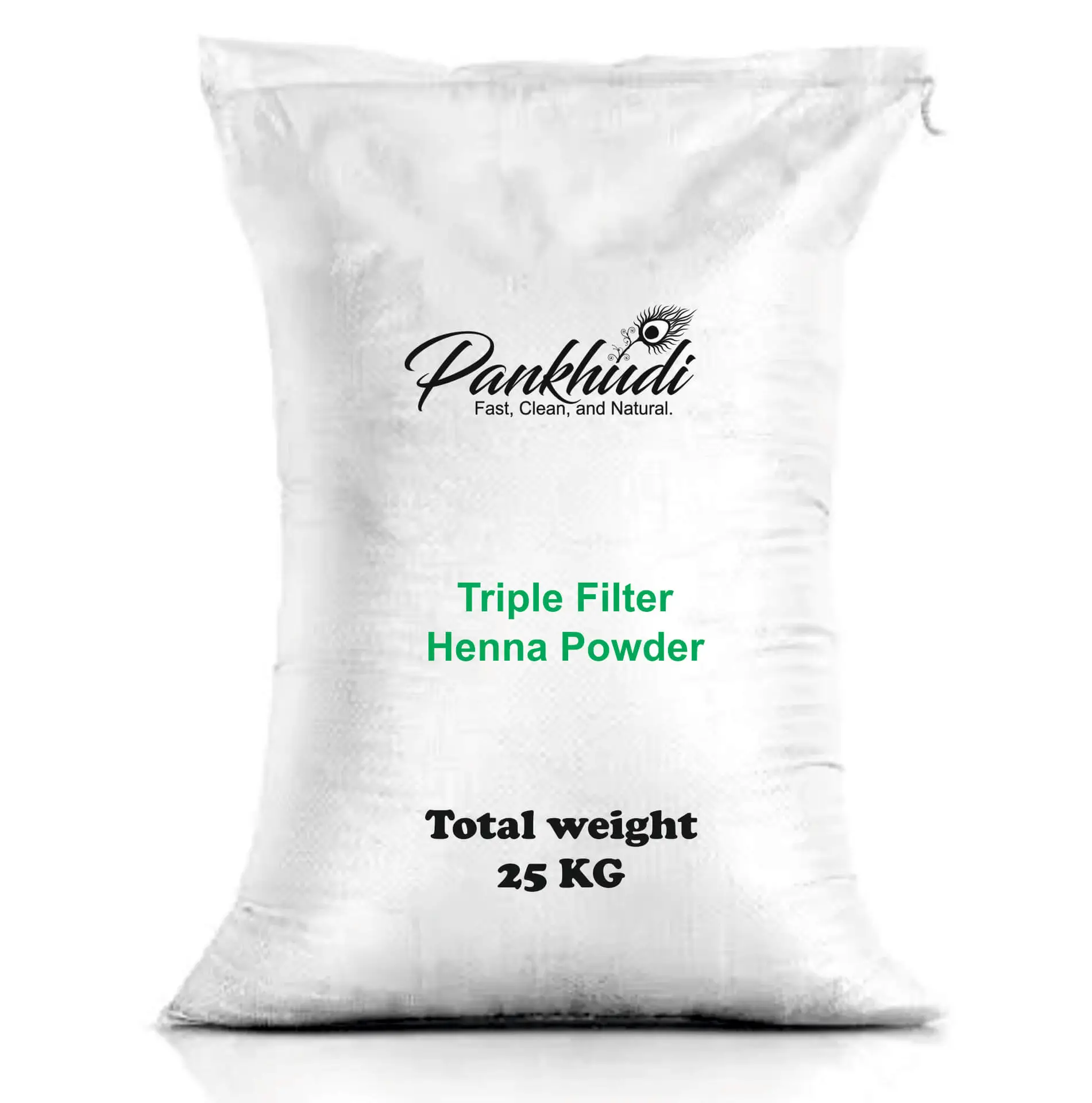Henna FAQ's
Yes, all our products are 100% natural. We do not use any chemical agents or chemical preservatives in any of our products. This means we are also free of parabens, phthalates, SLS, sulphates, silicones, polysorbates and PEG.
Our products are made from fresh and natural products and do not involve any kind of chemical processing to make them. They are prepared just like you would have made in your own kitchen. Most other natural products are not prepared fresh or are not able to use wonderful natural ingredients like curd, milk, fresh leaves, fruits, flowers etc.
No, not all products. Only certain products contain perishable ingredients such as yogurt and therefore need to be refrigerated. You can find refrigeration instructions on the back of the product pouch. If you do not see any refrigeration instructions, you can safely store the product at room temperature.
Yes, all of our products are clinically tested and certified as dermatologically tested for safety.
Henna is a completely natural paste made from the leaves of the Henna plant (Lawsonia inermis). The leaves of the plant contain a natural and very effective pigment. When the leaves are dried and crushed into powder, they can be mixed with other natural ingredients to make a henna paste that is used in temporary body art tattoos.
Once you have applied the henna design to the skin, you should leave it there for as long as possible (at least 2 hours). The longer you leave it on the skin, the darker the stain will be. Once the paste is dry, you can wrap the design using saran wrap to hold it in place. Some people will even sprinkle gel spray or hairspray over the design to make it last longer.
If left alone, the henna paste will dry out and start cracking after about 30 minutes of application. Then it will start to break and crumble. You can use a dry paper towel to scrub off the dry henna or you can wash it off with warm water.
Henna tattoos usually last for 10 days – 2 weeks. Henna stains the top layer of skin and will naturally fade when the skin is exfoliated. To help the tattoo last longer we recommend using an all natural balm on the tattoo when getting into the water. Also, staying out of the ocean and swimming pool will help the tattoo last longer.
The paste keeps up to 4 weeks once mixed in a bottle or cone, if kept in the refrigerator, ideally the freezer. Henna powder will stay fresh for up to 2 years if it is stored in a cool, dark, dry place (a refrigerator is ideal).
Henna is completely natural and can be used on both children and pregnant women. You may want to do a small patch test first to test sensitivity before doing a larger design.
The color of henna usually fades in one to three weeks depending on your skin and how much you wash the area where the henna is applied. For the longevity of henna color, we suggest washing less of the body area where henna is applied and using less soap.
How deep henna color you will get depends on various factors. First of all body part – henna gives best color in palm. We have also seen good color in the ankles.
In rest of the body it depends on your skin and body heat and also the quality of henna paste. We have seen that by applying the same mehndi on the same part of the body of two persons, different colors are formed.
If you’re willing to put in some extra work, you can get better colors. Keep the henna paste moist for at least an hour by applying a mixture of lemon and sugar.
Wrap the henna paste with a cloth or plastic so that the heat remains inside and the body can seep from the paste. For longevity, avoid washing the part frequently and avoid using soap.
- Add these to your bowl: 25g henna powder (about 1/4 cup), 13g sugar (about 1.5 teaspoons), 7.5ml essential oil (about 1.5 teaspoons) and about 1/4 cup water
- Cover with cling wrap. ,
- Check to see if your henna is ready with a simple spot test.
- Henna Paste is ready to use !
Information about rosemary aid lavender oil: High in terpenes, or monoterpene alcohols, that help rosemary release its color, giving you the deep henna stain you get. The henna helps in the smooth texture of the paste and prevents the henna from drying out too quickly.
The only oils recommended to use when making henna paste are: lavender, eucalyptus, tea tree or cajeput.
Essential oils such as lemon oil, eucalyptus oil, clove oil or mahalbia oil can be used to darken the henna.
Henna powder, also known as Mehndi, is a natural dye derived from the leaves of the henna plant (Lawsonia inermis). It has been used for centuries for body art, hair coloring, and traditional ceremonies.
Henna powder is made by drying and grinding the leaves of the henna plant into a fine powder. The leaves are typically harvested, dried, and then pulverized to create the powder.
Henna powder has various uses, including:
- Body art: Henna is commonly used to create temporary tattoos or intricate designs on the skin.
- Hair dye: It is used as a natural hair dye, imparting a reddish-brown color to the hair.
- Traditional ceremonies: Henna is often used in cultural and religious ceremonies, such as weddings and festivals.
Generally, pure henna powder is safe for most people when used externally. However, some henna products may contain additives or chemicals that can cause allergic reactions. It’s essential to use high-quality, natural henna powder and perform a patch test before applying it to a larger area of the skin.
Once mixed into a paste and applied to the skin or hair, henna typically lasts for 1-3 weeks, depending on factors such as skin type, application technique, and aftercare.
To prepare henna paste, mix henna powder with water (and optional ingredients like lemon juice, sugar, or essential oils) to form a smooth, thick paste. Let the paste sit for several hours to allow the dye to release, then transfer it to a cone or applicator for use.
While pure henna powder is generally safe for most skin types, individuals with sensitive skin or allergies should perform a patch test before applying henna to a larger area. If any irritation or allergic reaction occurs, discontinue use immediately.
Pure henna powder typically produces a reddish-brown stain on the skin or hair. However, some henna powders may be mixed with other natural ingredients or dyes to create different shades, such as black or burgundy.
Store henna powder in a cool, dry place away from direct sunlight to maintain its potency. Seal the container tightly to prevent moisture from entering, as moisture can degrade the quality of the powder over time.
Yes, pure pankhudi henna powder is vegan and cruelty-free, as it is derived from plant leaves and does not involve any animal products or testing.






